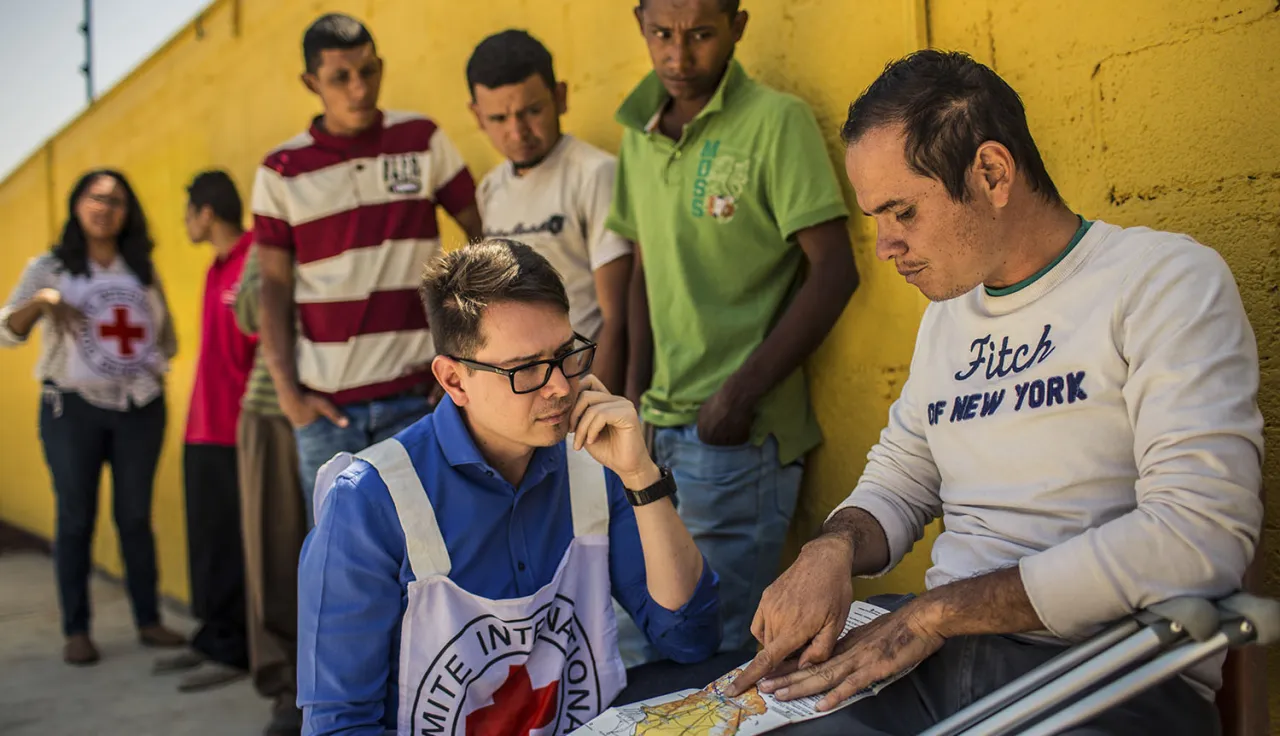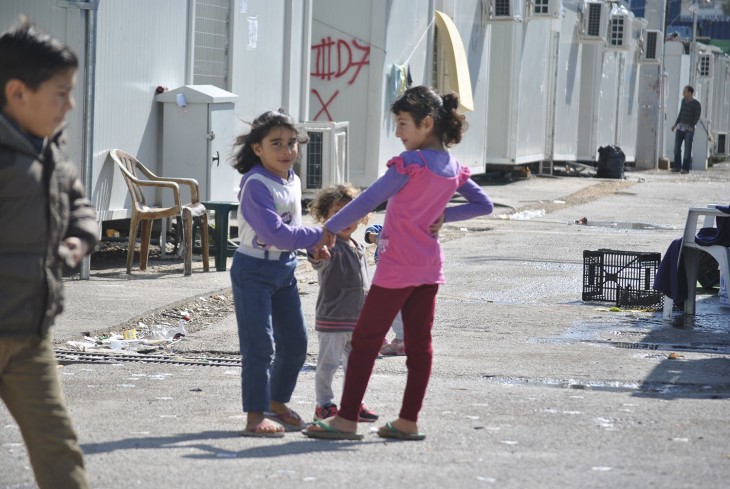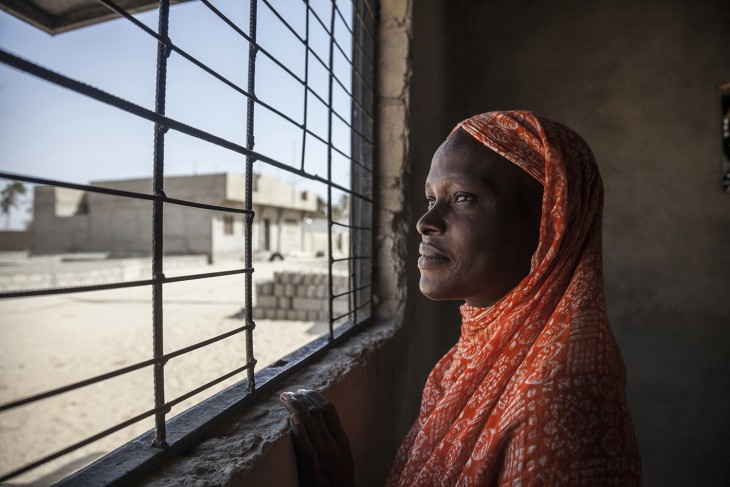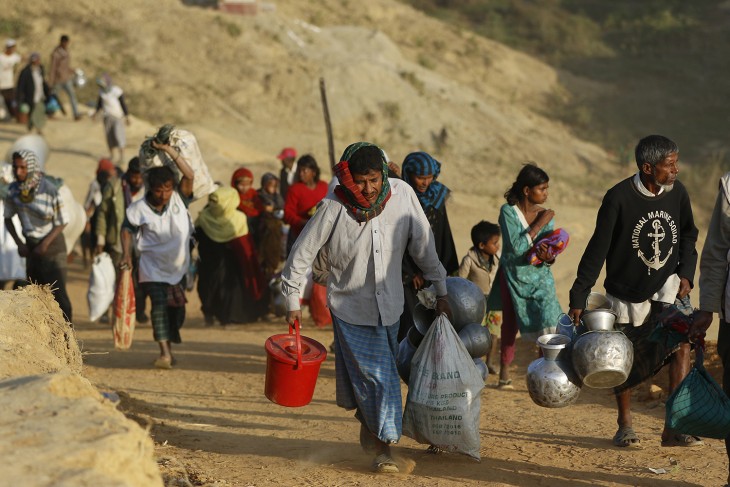The ICRC’s response to the needs of vulnerable migrants

Migration is a global and complex phenomenon.
The causes behind migration are many and varied. Whatever the reasons for leaving their country, migrants can become vulnerable at different stages of their journey, and some endure hardship that can threaten their life and affect their physical and mental well-being.
Understanding the experiences of migrants
Migrants can transit through and become stranded in areas of conflict or other situations of violence. Along migratory routes, certain migrants make easy targets for abuse and exploitation, and face countless risks and difficulties, including loss of contact with their families, accidents, serious illness and obstacles in accessing essential services such as medical care, detention and discrimination.
In addition to this, thousands of migrants die or disappear along the way, leaving their families to wait in anguish for answers.
Our approach
In view of the global nature of migration, the International Commitee of the Red Cross (ICRC) together with the International Red Cross and the Red Crescent Movement draw on their presence all along the migration routes to better understand and address the needs of vulnerable migrants and help bridge the existing protection and assistance gaps.

Daily life in the Sakaramagkas migrant camp in Greece. CC BY-NC-ND / ICRC / Fragkiska Megaloudi
The ICRC seeks to ensure that all migrants receive the protection that they are entitled to under international and domestic law, including the special protection afforded to certain categories of people such as refugees, asylum seekers, and stateless persons.
While legal status determines individual rights, our response is driven by the needs of migrants, and is thus not conditioned by their migratory status. Operating under a strictly humanitarian mandate, we neither seek to encourage nor discourage, nor prevent migration.
Our work on behalf of vulnerable migrants and their families takes place mostly in areas affected by armed conflict or other situations of violence. At all times, we remain available to provide technical advice and/or operational support to the National Red Cross and the Red Crescent Societies within our areas of expertise, such as restoring family links, visiting detained migrants and clarifying the fate of missing persons.

Khady, 32 years old, the wife of a missing migrant, benefits from a psychosocial project led by the ICRC and the Senegalese Red Cross Society. CC BY-NC-ND / ICRC / José Cendon
We seek to work with States. They bear the primary responsibility for guaranteeing the safety and upholding the rights of everyone under their jurisdiction regardless of their immigration status. States must ensure the provision of adequate safeguards to protect the safety and dignity of migrants. We remind them of their obligations towards migrants under domestic and international law, including respect for the principle of non-refoulement.
We recognize the importance of effective cooperation to meet the needs of vulnerable migrants. Attention is paid to the presence and capacity of other actors, and collaboration is established, always with due respect to the Movement's Fundamental Principles, with those that have experience working with migrant populations.

United Nations High Commissioner for Refugees transit point near Kutupalong camp. In August 2017, when violence broke out in the Rakhine state, people fled to Bangladesh, seeking shelter and safety.
At a policy level, the ICRC contributes to the humanitarian debate on migration by taking part in regional and global forums, drawing on our first-hand understanding of the experience and protection needs of migrants.
We have for example contributed to the development of the Global Compact for Safe, Orderly and Regular Migration (GCM) and the Global Compact on Refugees. We have called on States to duly consider the humanitarian problems that migrants and refugees may face and their protection needs in these processes as well as to comply with their existing international obligations.
The ICRC's key messages to States focused on missing migrants, immigration detention, the principle of non-refoulement, the use of force, and family separation.
In line with our recommendations, States have committed in the GCM:
- to prevent disappearance and loss of life, and address the plight of missing migrants and their families. Many of the suggested practical measures on international cooperation and references to international legal obligations were sourced directly from the ICRC suggestions and policy papers;
- to use migration detention only as a measure of last resort and to work toward ending the detention of children on the ground of their migratory status or the one of their parents; and
- to guarantee due process by upholding the prohibition of collective expulsion and of returning migrants where there is a real and foreseeable risk of death, torture, and other cruel, inhuman and degrading treatment or punishment, or other irreparable harm, in accordance with their obligations under international human rights law, including the principle of non-refoulement.
Our response
The ICRC responds to the needs of vulnerable migrants in a variety of ways, including by:
• Conducting visits in immigration detention facilities ;
• Restoring family links;
• Clarifying the fate and whereabouts of missing people and supporting their families; and
• Ensuring proper and dignified handling of human remains and other forensic services.
Read more :
ICRC comments on the Global Compact for Safe, Orderly and Regular Migration (GCM)



